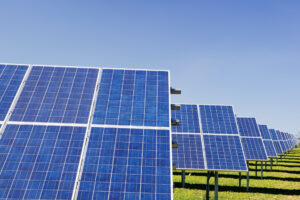 Global energy consumption has slowed down to 1.3% this year because of the post pandemic inflated energy prices and the war in Ukraine. These two events have forced some countries, including the adamantly green EU, to temporarily fall back on fossil fuels and delay the green energy transition. However, the green transition is inevitable if we want to have humans living on earth for the next 100 years. This is an overview of the challenges, opportunities and trends to watch over the coming decades as the world is heading towards a sustainable energy infrastructure model.
Global energy consumption has slowed down to 1.3% this year because of the post pandemic inflated energy prices and the war in Ukraine. These two events have forced some countries, including the adamantly green EU, to temporarily fall back on fossil fuels and delay the green energy transition. However, the green transition is inevitable if we want to have humans living on earth for the next 100 years. This is an overview of the challenges, opportunities and trends to watch over the coming decades as the world is heading towards a sustainable energy infrastructure model.
To plan for a low carbon future we need to recognise the global energy landscape, the EU strategy within the global sphere, and the role of Cyprus in all of these. Firstly, most of the developing world will need to scale-up to phase-down the use of carbon fuels. This indicates that the developed world will have to lead both by example and innovation. China, with its rare-earth deposits and the know-how of the EU and the US, has led the manufacturing of renewable technologies. It was a peculiar dynamic of reciprocity and great power competition – which is unfolding as we speak.
So, how does the world and its rival powers will handle technology, geopolitics, resources and control in the next 30 years? Well, its complicated. The global green leader has been the EU that focused on leading with legislation towards a sustainable global future (Paris Agreement). China was the manufacturer and the US was – well delaying (because of control of many carbon resources). But, now this equilibrium is shifting. All three, want to have an autonomous transition and the control that derives from all of the above. This can be positive – or not – we shall see.
The transition is happening fast and requires a complete transformation of how we power the global economy to reach net zero emissions. Thus, locally, we need to be ready to buy/sell gas and at the same time transition to clean energy. The EU’s Green Deal provides a roadmap to clean energy and carbon neutrality by 2050. This means we must slash carbon emissions every decade by half. The energy security question just adds further push as renewable energy must be produced, stored and consumed in Europe. This is why we will soon focus education on:
- Renewables
- Electrification
- Energy Storage
- Energy Efficiency
- Energy Management
- Hydrogen Fuel
Local industry and business leaders will need to appreciate the components that will be at the core of the transition and invest towards them today. The cascade chain of events must follow government energy deployment policies, energy integration, energy enabling policies, and finally structural change and transition. The EU’s Recovery & Resilience Plan funds are aiming towards this direction with Renewables, Electric Vehicles, Charging Stations, Automations and Entrepreneurship. Germany leads Europe and the world on all of these aspects and it can be a great example to follow for the years to come. Especially on an island that floods with sun 320 days a year!